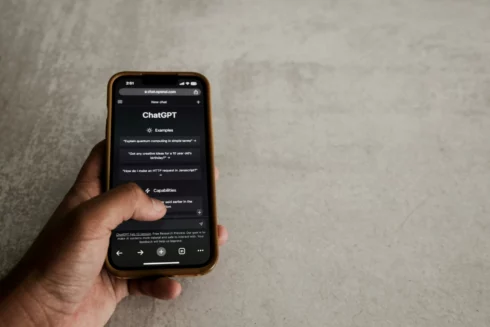

OpenAI today announced that it has completed the restructuring of its business. When the company was founded in 2015, it was launched as a non-profit organization and that non-profit has controlled the for-profit arm of the business.
Today’s restructuring turns the for-profit arm into a public benefit corporation called OpenAI PBC. The OpenAI Foundation—the new name for the non-profit—will still control the for-profit and hold a 26% equity stake in OpenAI PBC, which is currently valued at around $130 billion.
Being a public benefit corporation differs from traditional corporate structures in that they are “required to advance its stated mission and consider the broader interests of all stakeholders, ensuring the company’s mission and commercial success advance together,” OpenAI’s website explains.
According to Bret Taylor, chair of the OpenAI board of directors, the more OpenAI succeeds, the more the OpenAI Foundation’s equity will be worth, which it can use to fund philanthropic work.
The foundation announced that it will commit $25 billion to its first two focus areas: health and curing diseases and finding solutions to maximize AI’s benefits while minimizing its risks.
Taylor also noted that this has been in the works for the past year, during which the company worked with the Attorneys General of California and Delaware. These conversations lead to several changes from its initial plans, which OpenAI believes will better serve the company and the public.
“We believe that the world’s most powerful technology must be developed in a way that reflects the world’s collective interests. The close of our recapitalization gives us the ability to keep pushing the frontier of AI, and an updated corporate structure to ensure progress serves everyone,” Taylor said.
As part of the restructuring, Microsoft and OpenAI also announced a new deal for how the companies will interact going forward. Following the restructuring, Microsoft now owns 27% of the OpenAI PBC (previously it held a 32.5% share of OpenAI’s for-profit arm).
Microsoft has invested a significant amount of money into OpenAI since 2019, and the companies said in a joint statement that this new agreement “builds on our foundation, strengthens our partnership, and sets the stage for long-term success for both organizations.”
According to an article from Reuters, this change will make it easier for OpenAI to raise capital, as its initial deal with Microsoft gave Microsoft rights over much of OpenAI’s work. “As its ChatGPT service exploded in popularity, those limitations became a notable source of tension between the two companies,” the article said.
As part of the new agreement, OpenAI will remain Microsoft’s frontier model partner and Microsoft will continue having exclusive IP rights and Azure API exclusivity until OpenAI declares it has achieved artificial general intelligence (AGI), and that declaration must now be verified by a panel of independent experts.
There are some other differences in how IP is handled, such as IP rights for models and products being extended through 2032 and including models post-AGI, the exclusion of OpenAI’s consumer hardware from Microsoft IP rights, and that Microsoft’s IP rights to research will remain until the panel verifies AGI or until 2030. The companies define research IP as including models for internal deployment or research, and excluding model architecture, model weights, inference code, finetuning code, and IP related to data center hardware or software.
Additionally, when it comes to AGI, if Microsoft uses OpenAI’s products to develop AGI before it is declared and verified, those models will be subject to compute thresholds. Microsoft and OpenAI are also keeping their revenue sharing agreement through the time at which AGI is verified.
Other details that have been shared are that OpenAI will purchase $250 billion in Azure services and Microsoft is losing its right of first refusal to be OpenAI’s compute provider; OpenAI can provide API access to US government national security customers; and OpenAI can release open weight models if they meet requisite capability criteria.




